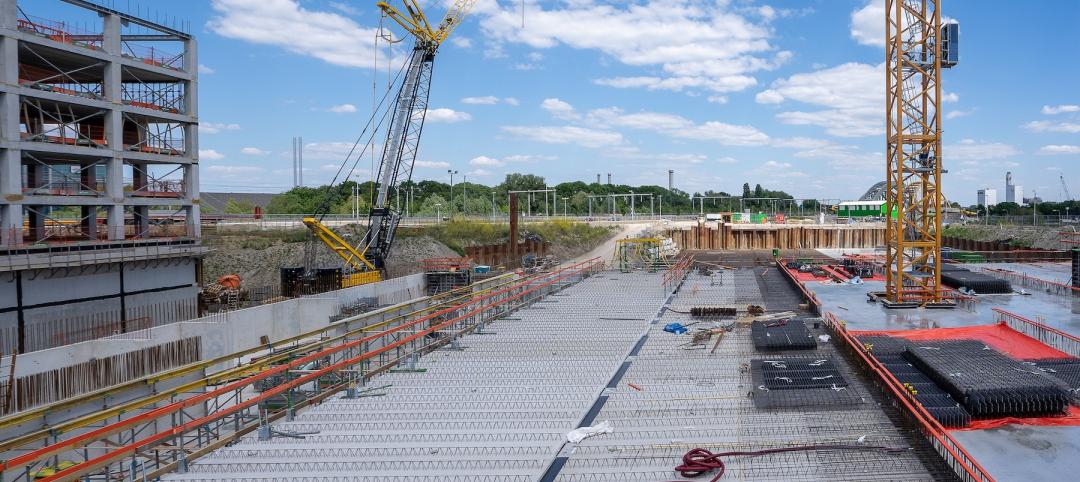The National Council of Architectural Registration Boards (NCARB) has voted to approve significant changes that will streamline and overhaul the Intern Development Program (IDP), which most states require to satisfy experience requirements for initial licensure as an architect. The changes will only be applicable where adoption has occurred by individual jurisdictional licensing boards.
The changes will be implemented in two phases. The first will streamline the program by focusing on the IDP’s core requirements and removing its elective requirements. The second phase will condense the 17 current experience areas into six practice-based categories that will also correspond with the divisions tested in the Architect Registration Examination® (ARE®).
NCARB announced the proposals to modify the IDP in late June at its Annual Business Meeting, which was attended by representatives of its 54 member jurisdiction boards that oversee architect licensing in their states or territories. After reviewing the feedback from the boards, the Board of Directors voted to move forward with both proposals for implementation in mid-2015 and mid-2016.
“Streamlining of the IDP requirements will reduce complexities while ensuring that intern architects still acquire the comprehensive experience that is essential for competent practice, and result in a program that is both justifiable and defensible,” said NCARB President Dale McKinney, FAIA.
Phase 1: Focusing on Core Requirements
The IDP currently requires interns to document 5,600 hours of experience, with 3,740 of those hours as core requirements in specific architectural experience areas. The remaining 1,860 hours are elective hours. The first reinvention phase will streamline the IDP by removing the elective hour requirement, with interns documenting only the 3,740 hours in the 17 core experience areas.
In making its decision to eliminate the elective hours, the Board considered several important statistics:
· The average intern currently takes five years to complete the hours required for IDP and another 2.2 years to complete the ARE, totaling an average of more than seven years from graduation to licensure.
· With this reduction in required IDP hours, it is likely that the average intern will take roughly three to four years to complete their IDP requirements following this change.
· Combined with the time required to complete the ARE, the Board anticipates that the average intern will have five to six years of post-graduation experience prior to qualifying for initial licensure.
Implementation and Jurisdictional Adoption
NCARB expects to implement the first phase on or before June 2015. Many states will need to formally adopt the streamlined program because of how experience requirements for licensure are written in their laws or rules.
“Our planning efforts will include development of a campaign to inform interns of the importance of understanding the variables in jurisdictional laws and rules related to the experience requirement when considering where they will apply for licensure,” McKinney said.
Phase 2: Aligning Internship and Examination
The Board also agreed to a future realignment of the framework of IDP requirements into six experience categories reflecting the six general areas of practice, which were identified by the 2012 NCARB Practice Analysis of Architecture. These changes will mirror the six divisions of a future version of the licensing exam, known as ARE 5.0.
NCARB’s internship-related committees will provide guidance on mapping the existing requirements into the new, overhauled format. This work should be completed and ready for introduction in mid-2016, before the launch of ARE 5.0 in late 2016.
To learn more, NCARB recommends that interns, architects, and other stakeholders visit the NCARB website, blog, and frequently-asked-questions web pages for information as the IDP implementation plan develops.
Related Stories
Justice Facilities | Oct 17, 2022
San Antonio’s new courthouse aims to provide safety and security while also welcoming the public
The San Antonio Federal Courthouse, which opened earlier this year, replaces a courthouse that had been constructed as a pavilion for the 1968 World’s Fair.
Market Data | Oct 14, 2022
ABC’s Construction Backlog Indicator Jumps in September; Contractor Confidence Remains Steady
Associated Builders and Contractors reports today that its Construction Backlog Indicator increased to 9.0 months in September, according to an ABC member survey conducted Sept. 20 to Oct. 5.
| Oct 13, 2022
Boston’s proposed net-zero emissions code has developers concerned
Developers have raised serious concerns over a proposed new energy code by the City of Boston that would require newly constructed buildings over 20,000 sf to immediately hit net-zero emissions goals.
Education Facilities | Oct 13, 2022
A 44-acre campus serves as a professional retreat for public-school educators in Texas
A first-of-its-kind facility for public schools in Texas, the Holdsworth Center serves as a retreat for public educators, supporting reflection and dialogue.
Building Team | Oct 12, 2022
Real estate development practices worsened impact of Hurricane Ian
A century ago, the southwest Florida coast was mostly swamps and shoals, prone to frequent flooding and almost impossible to navigate by boat.
Market Data | Oct 12, 2022
ABC: Construction Input Prices Inched Down in September; Up 41% Since February 2020
Construction input prices dipped 0.1% in September compared to the previous month, according to an Associated Builders and Contractors analysis of U.S. Bureau of Labor Statistics’ Producer Price Index data released today.
Hotel Facilities | Oct 12, 2022
Global hotel chain citizenM opens its first Chicago property and its fifth of the year
citizenM, a global chain of affordable luxury hotels, has opened its first Chicago property—its fifth opening of 2022.
Building Team | Oct 11, 2022
Associated Materials® Celebrates the Company’s Rich History, Which Began 75 Years Ago with the Founding of Alside
Since its inception in 1947, Alside® has been a leader in innovation and continues this very commitment to excellence – in people, products and services.
Standards | Oct 11, 2022
Peter Templeton named new USGBC and GBCI president and CEO
The U.S. Green Building Council (USGBC) and Green Business Certification Inc. (GBCI) appointed Peter Templeton as president and CEO.
Legislation | Oct 10, 2022
Chicago’s updated building energy code provides incentives for smart HVAC, water appliances
The Chicago City Council recently passed the 2022 Chicago Energy Transformation Code that is intended to align with the city’s goal of reducing carbon emissions by 62% from 2017 levels by 2040.

















